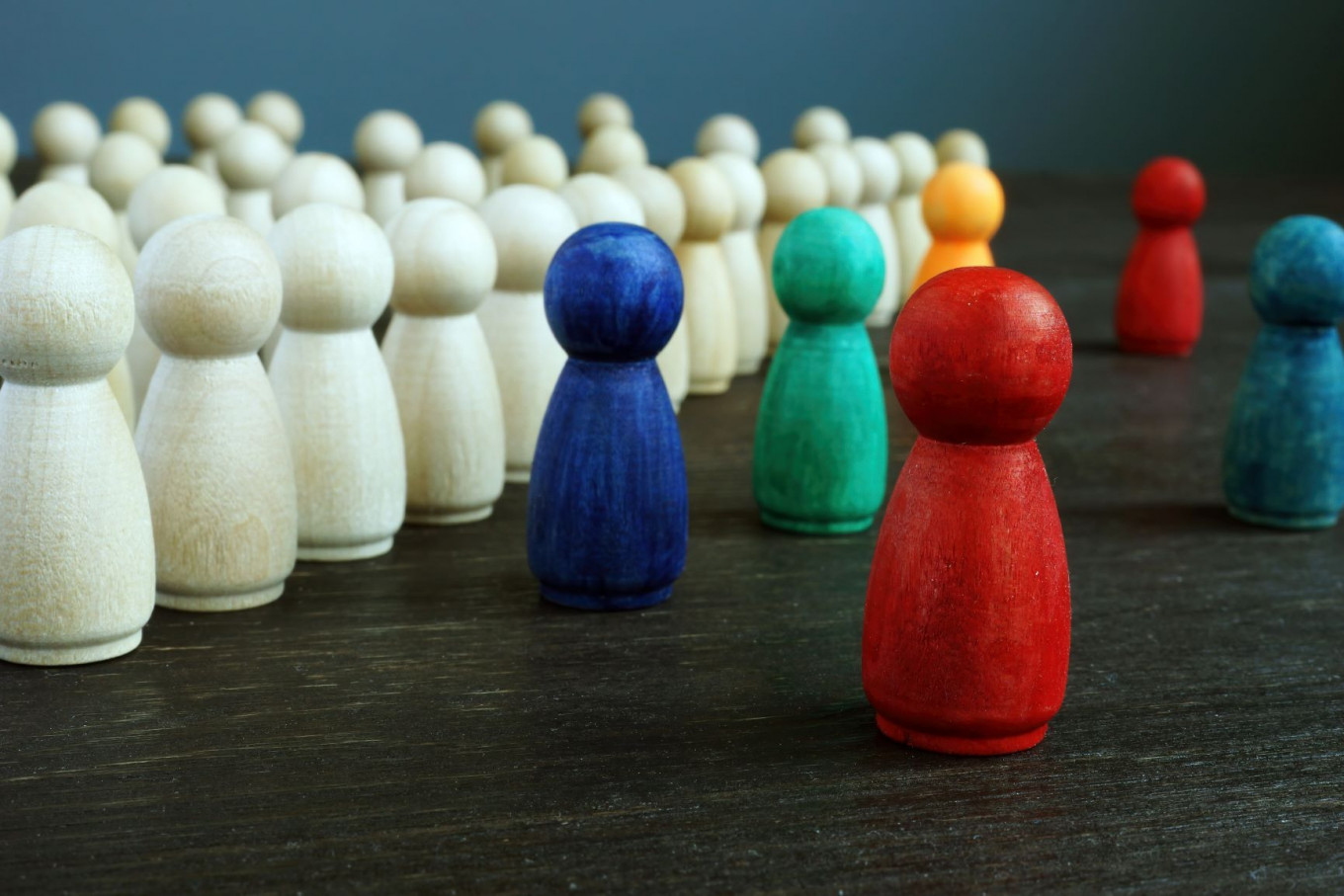Plans for anti-LGBT bylaws raise specter of persecution
With Indonesia entering a political year, attempts to criminalize the LGBT community have started to appear in the regions. Experts believe the recent passage of the Criminal Code might have helped push them along.
Change Size

S
tate-sponsored discrimination looks to be on the rise in the country ahead of the 2024 general elections, with plans to enact new anti-LGBT bylaws in several regions gaining traction after the mayor of Medan declared the North Sumatra provincial capital as “LGBT-free” at the beginning of the year.
Homosexuality is not illegal but still frowned upon by conservatives in Muslim-majority Indonesia, despite early history pointing to fluid gender practices the likes of which can easily be found elsewhere in Southeast Asia.
But with the country entering a highly politicized year, attempts to criminalize the LGBT community at the regional level have started to appear, following the example of Bogor, West Java, which passed a similar bylaw in 2021.
During a New Year’s celebration in Medan Mayor Bobby Asif Nasution drew laughter from an audience for declaring “there are no LGBT people in Medan, the city is anti-LGBT”.
He also expressed discomfort at the sight of same-sex partnerships in public in a personal anecdote.
As the son-in-law of President Joko “Jokowi” Widodo, critics believe his remarks have had the effect of normalizing discrimination against the LGBT community.
Since then, proposals to pass anti-LGBT bylaws have emerged among regional legislative councils (DPRD) across the country, including in Garut and Bandung in West Java and in Makassar, South Sulawesi.
This week, Bandung Mayor Yana Mulyana expressed his approval of a proposed bylaw for the West Java provincial capital, saying he was waiting on the DPRD to come to a final decision.
“Of course I support [the anti-LGBT bylaw]; the community violates both religious and legal norms,” Yana said in a statement on the city’s official website, on Tuesday.
“If they approve the regulation, we can begin working on the academic brief [in support of the draft bylaw] together.”
Meanwhile, state news agency Antara quoted the speaker of Bandung DPRD, Tedy Rusmawan, as saying that the bylaw would seek to prohibit LGBT-related activities in the city.
“It’s still just a submission. We will be discussing it at the Bylaw Formulation Body [Bapamperda],” he said on Wednesday.
Living law
Separately, Makassar city councilor Andi Hadi Ibrahim Baso claimed that the proposed bylaw for his city would closely follow the one passed in Bogor, Antara reported.
Bogor Bylaw No. 10/2021 defines homosexual, lesbian and bisexual relations and transvestitism as “deviant sexual behaviors”, grouped together with pedophilia and incest, among other things. Under this bylaw, the city administration has the authority to secure and rehabilitate individuals found to be involved in such “deviant” behavior.
At the time, the bylaw drew massive criticism from civil rights groups and LGBT allies. The Civil Coalition for Gender and Sexual Diversity (Kami Berani) stated in a press release that the bylaw risked “perpetuating discrimination and violence” against such minorities.
This stance was reiterated by constitutional law expert Bivitri Susanti of the Jentera School of Law on the more recent bylaw proposals.
“The main principle of any law is that it shouldn’t be discriminatory, so bylaws must not target specific groups like the LGBT,” Bivitri said on Wednesday.
The recent revision of the Criminal Code, which contains a provision governing the use of “living law”, is partly to blame for the rise of these potentially discriminatory regulations, Bivitri suggested.
The living law denotes publicly enforced customary law, and is only to be enforced in areas where “local customs” apply. What is considered customary may change throughout history.
Thorny issue
Legal experts argue that the living law is intended to codify customs that remain unregulated within the Criminal Code. However, it can also be used to create rules that persecute vulnerable groups that are shunned by the local populace.
LGBT rights continue to be a thorny issue in conservative-leaning Indonesia, with an endless tug of war occurring to decide how they should be regarded. While human rights activists advocate that the LGBT community is a minority group with the right to protection, a majority of people still have an unfavorable opinion of LGBT people.
In a public survey released in June 2022, Saiful Mujani Research and Consulting (SMRC) found that 68 percent of the general public would refuse to have LGBT people as their neighbors. “Among the general population, the majority still refuses to tolerate LGBT people,” said founder Saiful Mujani at the time.
Bivitri added that this wide public disapproval was one reason why politicians tended to use LGBT issues as a bogeyman and why the central government refuses to put a stop to discriminatory practices conducted at the regional level.
“There is a motive for regional governments and political parties for taking advantage of [LGBT issues], as it is easier to gain popularity by playing on collective emotions rather than discussing actual substance,” she said.
Even without the proposed bylaws, the LGBT community continues to face widespread public persecution.
Last week, authorities in Bima, West Nusa Tenggara shut down a cafe for hosting a birthday party that included a transgender fashion show, claiming that the event violated Bylaw No.7/2015 on public order.
West Rasanae district head H. Suharni said the decision to shut down the cafe came after a meeting with local chapters of the Indonesian Ulema Council (MUI) and the Muslim Peoples Forum (FUI).
“The owner’s initiative [to temporarily shutter the cafe] was not enough. As the district head, I have to act decisively,” Suharni said, as quoted by Tribunnews.com. (tjs)









